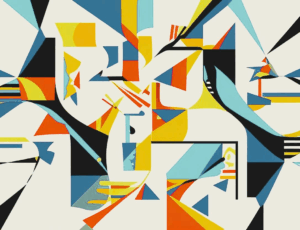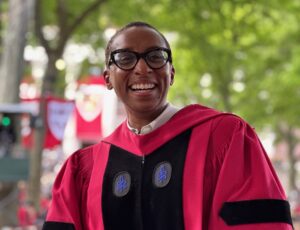What role does religion play in today’s radical right and how can progressives respond?
This intensive, ten-day course begins with a seven-day Summer School for PhD students and postdocs and builds on this groundwork with a three-day workshop involving presentations from prominent researchers in the field. With Jan Willem Duyvendak, Philip Gorski and Timothy Stacey, you will analyse the role of religious ideas, elites, movements, networks and parties in the rise and consolidation of the radical right, and use this as a basis to develop scenarios for a progressive response. We will explore the framing, development, mobilization, diffusion and implementation of reactionary politics around the world today, and compare these with cultural analyses of successful progressive movements. The overall aim is to critically and creatively engage in developing alternative narratives and strategies.
There is by now a vast and sophisticated literature on right-wing populism and its relationship to secular political ideologies such as nationalism, nativism and fascism. But relatively little attention has been paid to the connection between religion and populism, or to religion and the radical right more generally. Except, of course, by scholars working on the emerging field of religious nationalism. Moreover, a number of scholars have used tools from the study of religion for understanding progressive social movements: what can the study of the religious radical right learn from those analyses? Is there a new generation developing who identify as activist scholars? The goal of this course is to prepare a cohort of younger scholars to fill this gap by connecting these literatures and exploring how to cross the fourth wall of objectivity with scholarly integrity.
Program Summer School (days 1-7)
Thu. 15 August: What are “right-wing populism” and “religious nationalism” and how are they related?
Philip Gorski, Timothy Stacey & Jack Thompson
- 9:00-10:00 – introductions
- 10:00-12:00 – Populism and Religious Nationalism
Resources
1. Jan-Werner Müller, What is Populism? (Introduction & Chapter 1)
2. Philip Gorski, “Religious Nationalism and Right Wing Populism: Trumpism and Beyond” - 12:00-13:30 – catered lunch
- 13:30-15:30 – Populism and Fascism
Resources
3. Robert O. Paxton, The Anatomy of Fascism (Chapter 2)
4. Eva Illouz, The Emotional Life of Populism (Chapter 1) - 16:30 – drinks at the Fellows House
- 18:00 – dinner at De Waag
Fri. 16 August: Religious intellectuals and right-wing populism in South East Asia
Philip Gorski & Timothy Stacey
- 10:00-12:00 – Buddhist Nationalism and Communal Violence in Sri Lanka and Myanmar
Resources
5. Stanley Tambiah, Buddhism Betrayed (in full) - 12:00-13:30 – catered lunch
- 13:30-15:30 – Screening and Discussion
Resources
6. “The Venerable W”
Sat. 17 August: Religious networks and the radical right: the case of Pentecostalism
Clifford Bob & Philip Gorski
- 10:00-12:00 – Culture Wars Gone Global: the Case of Brazil
Resources
7. Clifford Bob, The Global Right Wing and the Clash of World Politics (Chapters 1, 3 & 6) - 12:00-13:30 – catered lunch
- 13:30-15:30 – Transnational Orthodoxy: the Case of Russia
Resources
8. Kristina Stoeckl and Dmitry Uzlaner, The Moralist International (Introduction, Chapters 1, 5, 7)
Sun. 18 August: Religious elites and populist parties
Philip Gorski
- 12:30-14:30 – Elites as Facilitators: the Case of Serbia
Resources
9. Michael Sells, The Bridge Betrayed (Chapters 1-4) - 15:00-17:00 – Elites as Bulwarks: the Case of Germany
Resources
10. Tobias Cremer, The Godless Crusade (Chapters 1 & 4)
Mon. 19 August: “Are we the bad guys?”
Philip Gorski & Timothy Stacey
- 10:00-12:00 – Right-Wing Populism and the New Class Conflict
Resources
11. Michael Lind, The New Class War (Chapters 1-5 & Epilogue) - 12:00-13:30 – catered lunch
- 13:30-15:30 – Liberalism vs. Populism?
Resources
12. Jan-Willem Duyvendak and Timothy Stacey, The Return of the Native (Chapters 1, 4, 7 & 8)
Tue. 20 August: Using tools from the study of religion to understand the progressive left
Molly Farneth & Timothy Stacey
- 10:00-12:00 – Myth-Making
Resources
13. Elizabeth A. Armstrong & Suzanna M. Crage, “Movements and Memory: The Making of the Stonewall Myth”
14. Ruha Benjamin, “Racial Fictions, Biological Facts” - 12:00-13:30 – catered lunch
- 13:30-15:30 – Collective Ritual
Resources
15. Timothy Stacey, “Rituals for Radicals”
Wed. 21 August: Making meaning together
Jan-Willem Duyvendak, Molly Farneth, Phil Gorski & Timothy Stacey
Program workshop (days 8-10)
Thu. 22 August
Jan-Willem Duyvendak
- 12:30 – doors open, reception
- 13:30 – introduction
- 14:00 – Marijn Kruk, NIAS fellow 2019-2020 (Utrecht University & EHESS) : Revolt: The Populist Revolt and the Battle for the Soul of the West
- 15:00 – Jack Thompson (University of Amsterdam) : The American Right in Geopolitical Perspective
- 16:00 – Clifford Bob (Duquesne University) : Religion and the Transnational Right
- 17:00 – Alain Dieckhoff (Sciences Po & CNRS) : Religious Nationalisms
- 18:00 – drinks at the Fellows House
Fri. 23 August
Philip Gorski
- 10:00 – Erella Grassiani, NIAS fellow 2023-2024 (University of Amsterdam) : Competing Nationalisms in Israel/Palestine
- 11:00 – Didem Ulnay Abaday (University of Helsinki) : “Gender Ideology” and the Populist Right in Turkey
- 12:00 – Ernst van den Hemel (NL-Lab Meertens Institute) : The Long Echo of Protestant Nationalism in the Netherlands
- 13:00 – catered lunch
- 14:00 – Jan Willem Duyvendak, NIAS director (University of Amsterdam) : Religion and Nativism in Western Europe
- 15:00 – Marietta van der Tol (university of Oxford) : Religion and Populism in Eastern Europe
- 16:00 – Philip Gorski, NIAS fellow 2024-2025 (Yale University & NIAS-fellow) : -Isms of the American Right
- 17:00 – drinks & dinner at Restaurant De Palmboom
Sat. 24 August
Jan-Willem Duyvendak & Philip Gorski
- 9:00 – Molly Farneth (Haverford College) : The Politics of (Progressive) Ritual
- 10:00 – Timothy Stacey, NIAS fellow 2025-2026 (Utrecht University) : Do Progressives Need Myths?
- 11:00 – Michèle Lamont, NIAS fellow 2024-2025 (Harvard University) : The Politics of Recognition
- 12:00 – conclusions
- 13:00 – catered lunch
How to register
The program is filled to capacity and registration has been closed.
About the organizers
The Netherlands Institute for Advanced Study (NIAS) is one of the institutes of the Royal Netherlands Academy of Arts and Sciences (KNAW), and was the third institute of its kind in the world – after the IAS at Princeton and CASBAS at Stanford. It has made it its mission to provide a physical and intellectual space for advanced research in the humanities and social sciences that is driven by curiosity and cross-discipline collaboration. NIAS is committed to supporting independent research and knowledge exchange in a setting that is both collaborative and multi-disciplinary – breaking down cross-discipline barriers and facilitating innovative advances in the process. NIAS aims to attract high quality scholars and select the best scientists. Successful applicants are selected by an external review process, where the quality and innovative value of the research proposal count. The institute offers offices, research facilities, library services and – if eligible – accommodation to its fellows.
Jan Willem Duyvendak is Distinguished Research Professor of Sociology at the University of Amsterdam (UvA). He received his master’s degrees in both sociology and philosophy at the University of Groningen. His main fields of research currently are belonging, urban sociology, ‘feeling at home’ and nativism. In 2013-2014, Duyvendak was Distinguished Fellow at the Advanced Research Collaborative at the Graduate Center of the City University of New York. In Spring 2016 he was Research Fellow at the Paris Institute for Advanced Studies. From July 2017 – July 2019 he was Executive Committee Chair at Council for European Studies. Since 2018 he is director of the Netherlands Institute for Advanced Study in the Humanities and Social Sciences at the Royal Netherlands Academy of Arts and Sciences (NIAS-KNAW). In 2021 he was elected member of the Royal Netherlands Academy of Arts and Sciences (KNAW) and in 2022 of the American Academy of Arts and Sciences. His latest books are Thuis. Het drama van de sentimentele samenleving (2017), Macht der gewoonten. Populisme in de polder (2022) and The Return of the Native. Can Liberalism Safeguard Us Against Nativism? (Oxford University Press (2022).
Philip S. Gorski is the Frederick and Laura Goff Professor of Sociology and Chair of the Sociology Department at Yale University. He received his BA in Social Studies from Harvard and his PhD in Sociology from Berkeley. He has been a guest professor in Beijing, Heidelberg, Konstanz, Paris, Shanghai, and Singapore. His work focuses on the complex interactions of religion and politics in early modern and modern Europe and North America. Recent books include American Covenant: A History of Civil Religion From the Puritans to the Present (Princeton, 2017), American Babylon: Christianity and Democracy Before and after Trump (Routledge, 2020) and (w. Samuel L. Perry), The Flag and the Cross: White Christian Nationalism and the Threat to American Democracy (Oxford, 2022).
Timothy Stacey is Researcher and Lecturer at the Urban Futures Studio, Copernicus Institute of Sustainable Development, Utrecht University, and Visiting Professor at the Centre for Studies in Religion and Society, University of Victoria, Canada. His second monograph, Saving Liberalism From Itself argues that politics needs to reconnect with what makes life meaningful for people and is based on ethnographic research in Vancouver, Canada. He is the co-founder of AltVisions, a burgeoning international, interdisciplinary network of academics, artists, policymakers, entrepreneurs and activists aiming to promote alternative visions of a shared political future.




